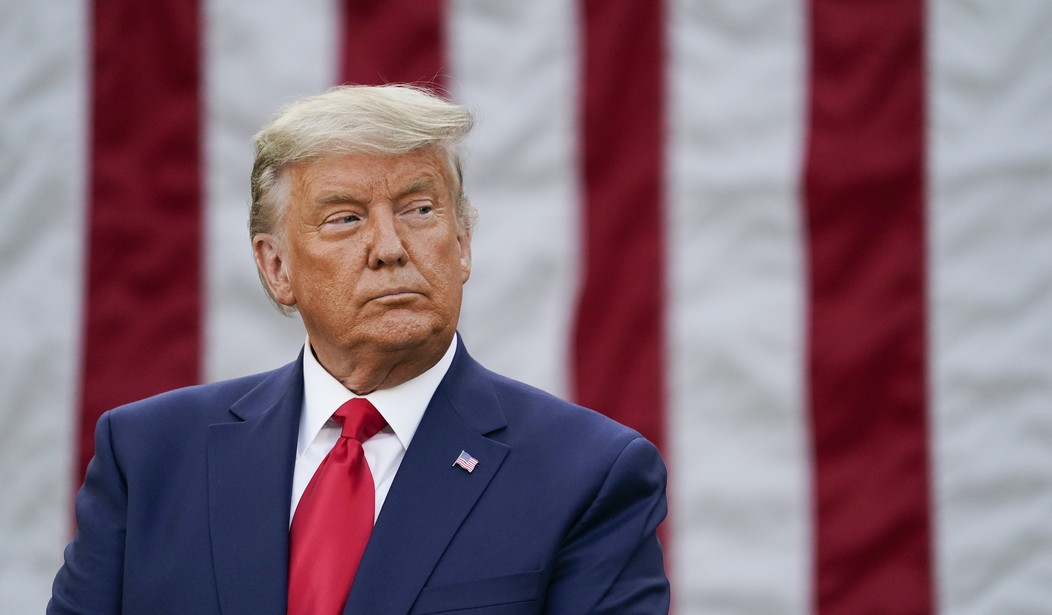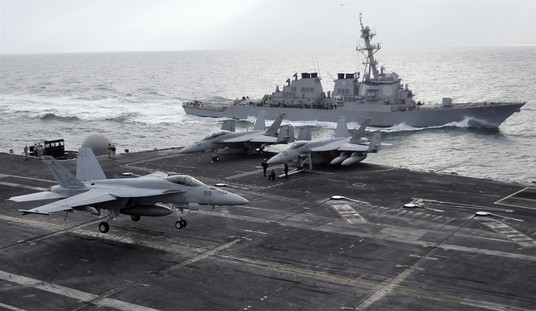Time magazine has named Joe Biden and Kamala Harris “Person of the Year,” in a tacit acknowledgment that they are, for all their individual differences, essentially a single cog in the socialist internationalist machine that is poised to roll all over us. And there is no doubt that driving the American republic to the point of near-death with election chicanery on a breathtaking scale is indeed a significant achievement, but amid all the excitement, it was barely noticed that President Trump had delivered yet another rebuke to the massively failed foreign policy establishment that is poised to get back in the saddle and start failing some more, by engineering peace between Israel and another Arab state, Morocco.
Trump tweeted Thursday: “Another HISTORIC breakthrough today! Our two GREAT friends Israel and the Kingdom of Morocco have agreed to full diplomatic relations – a massive breakthrough for peace in the Middle East!” The Morocco deal, like the previous one between Israel and Sudan, seems to be a straightforward bargain. Trump also tweeted Friday: “Today, I signed a proclamation recognizing Moroccan sovereignty over the Western Sahara. Morocco’s serious, credible, and realistic autonomy proposal is the ONLY basis for a just and lasting solution for enduring peace and prosperity!” So Morocco gets recognition of its sovereignty over the Western Sahara, and the world gets another step toward peace between Israel and its Arab neighbors.
That makes four agreements between Israel and Arab nations, something John Kerry confidently stated was not even remotely possible. Isn’t it great that Kerry is about to go back to work for the Person of the Year (what pronouns does that beast with two backs use?) and start showing us how it’s done again?
No one thought it could be done, except, of course, Donald Trump. Back in September, when Bahrain and the United Arab Emirates signed their deals with Israel, Trump stated: “We’re here this afternoon to change the course of history. After decades of division and conflict we mark the dawn of a new Middle East.” This was accurate. These “Abraham Accords” have already changed the entire landscape of the Middle East as, for the first time in decades, pragmatic considerations are taking precedence over the fixed ideas that have guided the foreign policy stances of all the Muslim and Arab countries regarding Israel.
Although this aspect of the conflict has been little noted and is still routinely ignored by foreign policy analysts, the Muslim world’s opposition to Israel has not been based upon conflicting claims for land or anything else, but upon core principles of the Islamic religion. As The Palestinian Delusion: The Catastrophic History of the Middle East Peace Process shows, the Qur’an commands Muslims to “drive them out from where they drove you out” (2:191). Even though it is a historical fiction that Israel actually drove Muslim Arabs out, this claim is a staple of pro-Palestinian propaganda, and hence it is a divine imperative, no more negotiable than the Ten Commandments are for Jews and Christians, that Muslims must destroy Israel and “drive out” the Israelis.
That means that as long as pious, believing, knowledgeable Muslims are in charge in Muslim countries, which is by no means always the case, no negotiated settlement will ever establish Israel securely and end the jihad against it. That in turn is why analysts ignore Islam when considering the conflict: people don’t like bad news, or problems that cannot be solved. Nonetheless, this is the reality of the situation, and no good can ever come from ignoring reality.
Why, then, did Bahrain, the United Arab Emirates, Sudan, and now Morocco normalize relations with Israel? Because it was in their interests to do so. Sudan was taken off the terror list in exchange for normalization. The Islamic Republic of Iran has for years claimed Bahrain as Iran’s nineteenth province, and the UAE likewise feels the heat of being in close proximity to one of the world’s leading state sponsors of terror. In a certain sense, these deals with Israel are a byproduct of Barack Obama’s decision to send billions to the mullahs’ tottering regime: a newly secure and empowered mullahcracy threatens Bahrain and the UAE, and so it was in their best interests to look for assistance from a country that Iran also menaces.
Now, with the mullahs expecting The Person of the Year and their minions to prop them up again, there are numerous indications that many in the Islamic world have had quite enough of the Palestinians’ jihadist intransigence and resistance to all peace accords, and are willing to proceed on a pragmatic basis, quite aside from what Islamic doctrine and law say, in order to secure their own countries against the threat from Iran.
And so maybe Old Joe deserves the credit for Middle East peace that the establishment media is certain to give him no matter what: if he hadn’t publicly stated his intention to empower and enable the Islamic Republic, Sunni Arab states wouldn’t see the need to make accords with Israel to protect themselves from the mullahs. Make that man, uh, those people, Person of the Year!
Meanwhile, it’s too bad that there is no unbiased, trustworthy organization giving out prizes for efforts toward world peace. If there were, Trump would be a shoo-in. But that would require a sane world.
Robert Spencer is the director of Jihad Watch and a Shillman Fellow at the David Horowitz Freedom Center. He is author of 21 books, including the New York Times bestsellers The Politically Incorrect Guide to Islam (and the Crusades) and The Truth About Muhammad. His latest book is Rating America’s Presidents: An America-First Look at Who Is Best, Who Is Overrated, and Who Was An Absolute Disaster. Follow him on Twitter here. Like him on Facebook here.










Join the conversation as a VIP Member